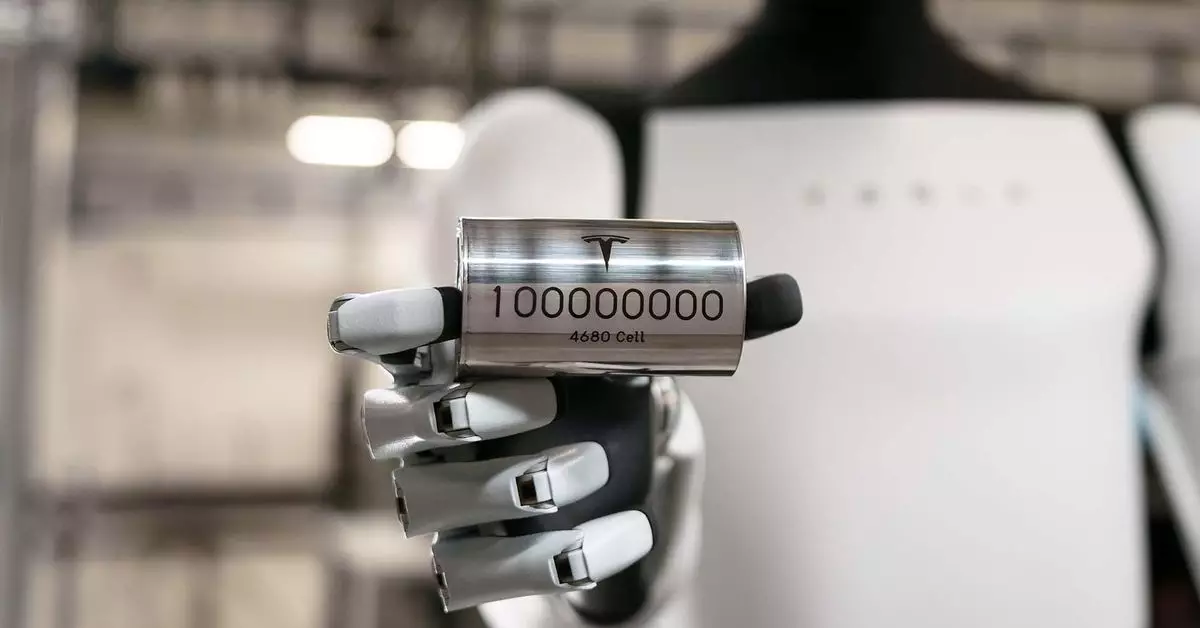In the rapidly evolving world of electric vehicles (EVs), conflicting opinions on battery technology sources dominate discussions. One of the most pronounced voices in this debate is Robin Zeng, the chairman of Contemporary Amperex Technology Co., Limited (CATL), the largest EV battery manufacturer globally. Zeng recently made headlines by stating that Tesla CEO Elon Musk’s bold ambition to succeed with the 4680 cylindrical cell technology is fundamentally flawed. Through a straightforward assertion, Zeng suggests this venture is destined for failure, raising critical questions about the future of Tesla’s battery strategy.
During Musk’s high-profile visit to China earlier this year, a face-to-face debate between him and Zeng shed light on their contrasting perspectives. Zeng claims that he presented compelling evidence during their discussions, which left Musk speechless. This confrontation hints at a possible disconnect between Musk’s visionary approach to EV batteries and the practical realities championed by Zeng and other industry experts. The implications are significant: while Musk is promoting innovation through his designs, Zeng emphasizes real-world performance and the current limitations of Tesla’s offerings.
Tesla’s 4680 battery cells, featured in models like the Cybertruck, are marketed as game changers for energy capacity—reportedly providing five times more energy. Despite these claims, recent reports have indicated that Musk has set strict deadlines for his engineers to resolve ongoing cost challenges and performance issues associated with these batteries by year-end. The pressure to deliver on such ambitious promises raises the stakes significantly for Tesla, potentially impacting investor confidence and consumer trust if not handled carefully.
Exploring the range of battery technologies available, Zeng draws attention to CATL’s specialization in lithium iron phosphate (LFP) batteries. While these batteries do not rival Tesla’s cylindrical cells in range, they offer their own advantages including safety and longevity. CATL’s batteries are already powering various automotive brands, including Ford’s electric lineup in North America. This juxtaposition of technologies presents an intriguing landscape in which both companies must navigate consumer expectations and technological advancements.
Zeng also notes a critical issue in the tech and automotive sectors: the penchant for “overpromising” timelines. Musk is known to set ambitious deadlines—one that often runs afoul of the complex and lengthy process of technological development. The example set by Musk’s ventures into Full Self-Driving technology exemplifies the dangers of promising too much too quickly. This could lead to unrealistic expectations from consumers, which, if unmet, risks tarnishing the credibility of all stakeholders involved in the EV market.
As the rivalry between Tesla and CATL continues to unfold, the outcome will likely shape the future landscape of battery technology. Zeng’s critique of Musk is not merely personal; it reflects a broader concern over the sustainability of ambitious promises in a competitive market. The road ahead for EVs will not be determined by grand expectations alone but by the marriage of innovative design and practical execution. Both Zeng and Musk have vital roles to play as they seek to push the envelope in electric vehicle technology.

